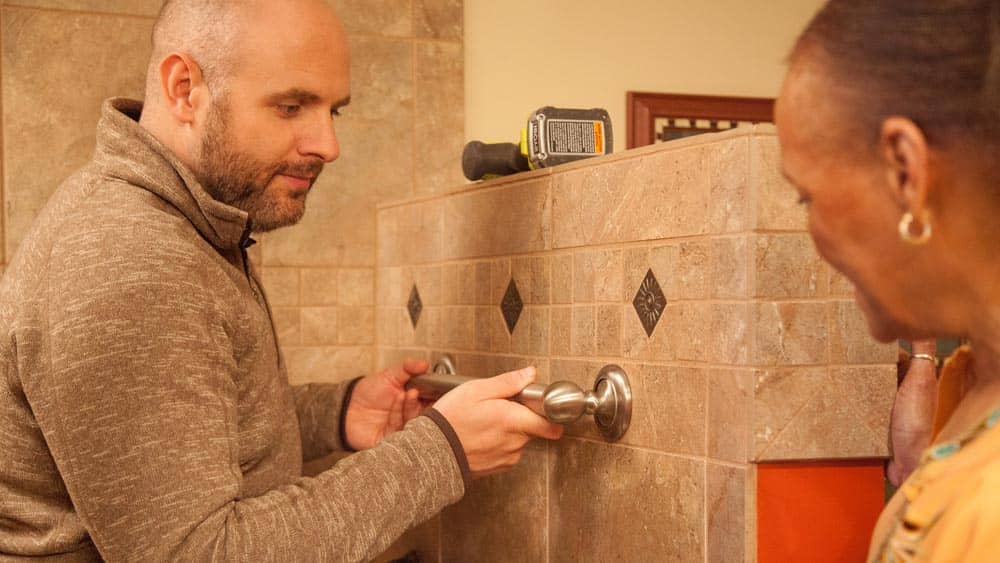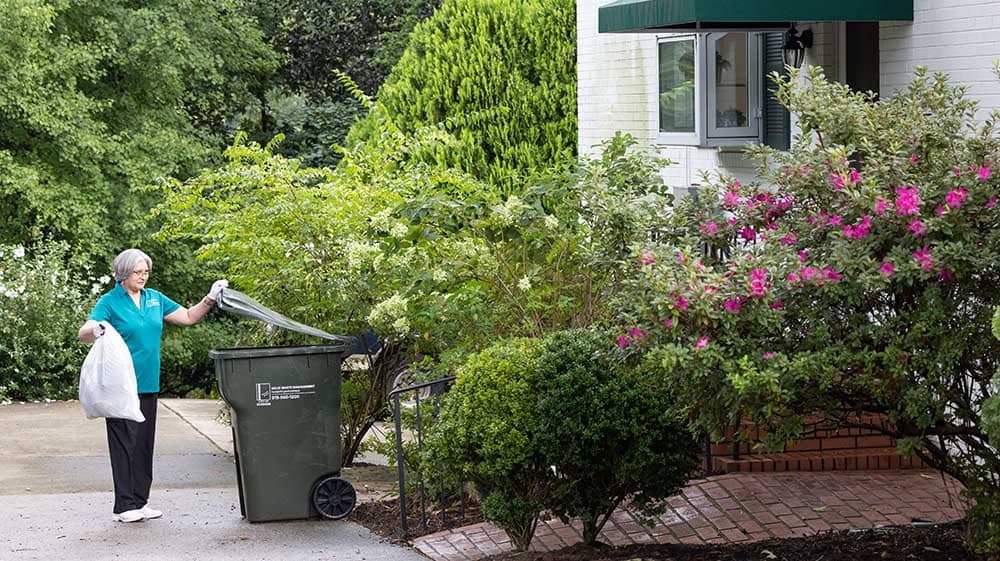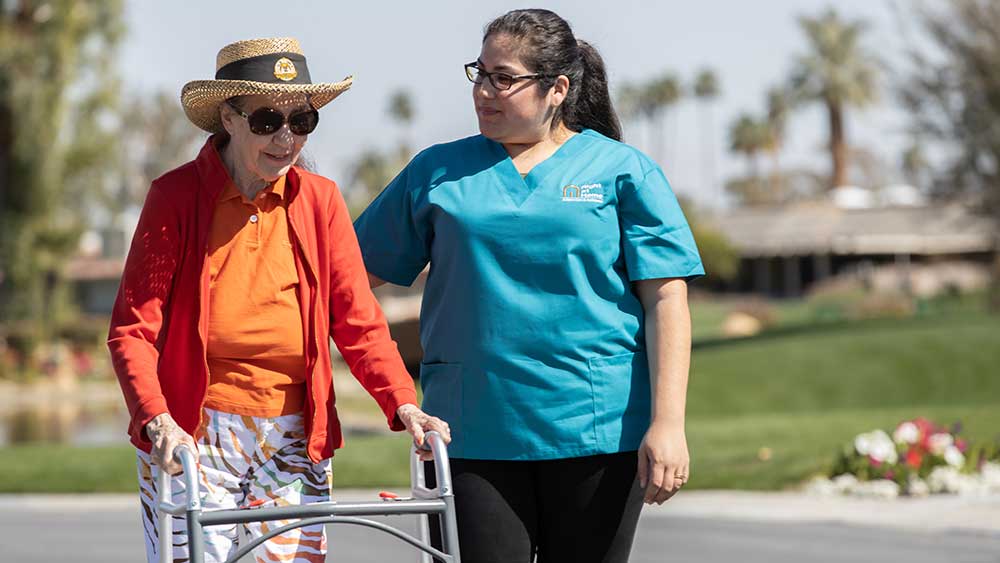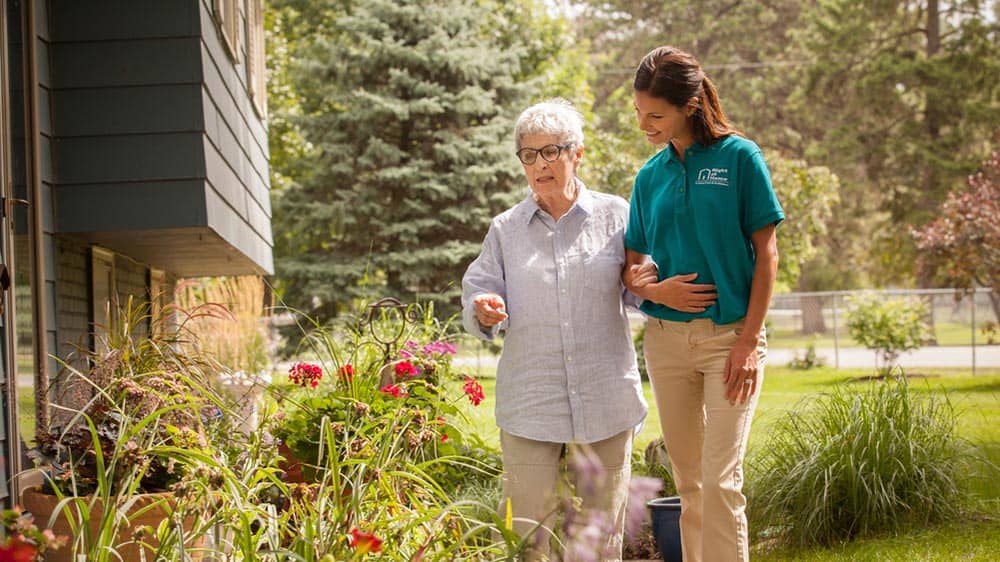
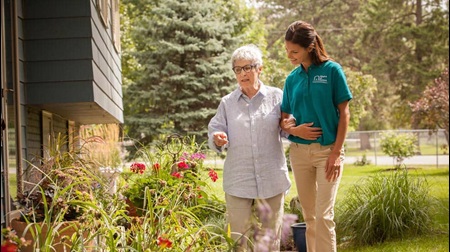
How Seniors Can Improve Their Mobility and Reduce Fall Risk
For many seniors, the fear of falling can be a big worry. Falls can lead to serious injuries, and recovery can be more difficult the older a person is. Because of this, many older adults avoid socializing or physical activity. The good news is that for most, there are ways to reduce fall risk and keep moving confidently. Here’s how older adults can improve their mobility and put those fears to rest.
What Causes Older Adults To Fall?
According to the Centers for Disease Control and Prevention, 1 out of 4 older people will fall each year, and less than half will tell their doctor. If a senior has experienced a fall, they have double the chance of falling again. Many health conditions and risk factors can contribute to why a senior may be more at risk for a fall, including:
- Lower body weakness.
- Vitamin D deficiency.
- Difficulties with walking and balance.
- Use of medicines, such as tranquilizers, sedatives, or antidepressants.
- Vision problems.
- Foot pain or poor footwear.
- Home hazards.
Most falls are caused by a combination of risk factors. The more risk factors a person has, the greater their chances of falling.
Some older adults can experience a fall out of the blue—a so-called “drop attack.” It can happen without any obvious trip or slip, making it particularly frightening.
All older adults who experience a fall should be diligent about telling their doctor regardless of the cause, so together, they can explore ways to prevent one from happening again.
Reduce Your Fall Risk: Tips for Seniors
There are many simple things you can do to reduce your risk of falling beyond consulting your physician. These things include:
Staying Active. Regular exercise is key to staying mobile. Focus on activities that strengthen your legs and improve your balance. Walking, swimming, and tai chi are great options. These activities not only boost your muscle strength but also enhance your balance, making you less likely to fall.
Keeping a Check on Your Vision and Hearing. Believe it or not, our eyes and ears play a big role in keeping us balanced. Make sure to have regular vision and hearing checkups. If your glasses or hearing aids need an update, don’t wait. The clearer you see and hear, the better you navigate your surroundings.
Reviewing Your Medications. Some medicines can make you feel dizzy or drowsy, increasing the risk of falling. Have a chat with your doctor about all the medications you’re taking. Your doctor can check if any of them might be affecting your balance and, if necessary, adjust your prescriptions.
Making Your Home Safer. A safe home is a fall-free home. Remove tripping hazards like loose rugs, cords, and clutter. Make sure your home is well lit, especially at night, to avoid stumbling in the dark. Grab bars in the bathroom and handrails on stairs can also be a big help.
Wearing the Right Shoes. Good shoes aren’t just about style; they’re about safety, too. Wear shoes with nonslip soles that give good support. Avoid walking around in socks or slippers that could easily slide off or cause you to trip.
Staying Hydrated and Eating Well. Eating a balanced diet and staying hydrated can also help reduce fall risk. Good nutrition supports muscle strength and keeps your bones healthy. Drinking plenty of water helps prevent dehydration, which may cause you to feel lightheaded or dizzy.
Learning To Fall—and Getting Back Up Safely. “Most of our instinctive actions when we start to fall are more likely to get us hurt,” says an article from Harvard Health. Yes, there are “safer” ways to fall and safe ways to get back up. Learning how to get up safely can prevent further injury. Ask your doctor or a physical therapist for tips on minimizing injuries if you fall.
Falling might seem like a big fear for seniors, but there are ways to minimize the risk. By staying active, making some adjustments around the house, and keeping up with regular health checkups, older adults can help keep themselves on their feet and moving freely. Just take it one safe step at a time!
How Right at Home Can Help
Whether due to aging, a health condition, or recovery from an illness, Right at Home can be there to help lend a steady hand at just the right time. Our trained and bonded/insured caregivers provide a wide range of services, from companionship and light housekeeping to help with mobility. Use our office locator to find the office closest to you and ask for a FREE in-home consultation.
Right at Home offers a FREE downloadable Fall Prevention Guide with handy tips and a checklist of things to review in your home to ensure a safer environment.




